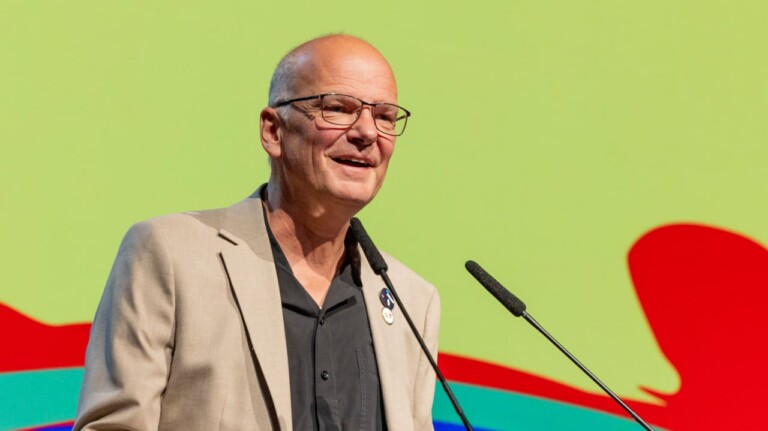Moderator Fred Vogelstein (Crazy Stupid Tech) leads a dynamic discussion with tech veterans Mitchell Baker (Mozilla) and Esther Dyson alongside digital native Mona Ismail, examining how insights from past technological revolutions can help us manage upcoming transformations in areas like AI, genetic engineering, and sustainability.
Mitchell Baker cautions against “frequency bias” – our tendency to overstate the significance of new technologies: “The newest thing is the most exciting or the biggest change or the most important”, she observes. “It’s good to have that excitement, but that’s not always the case.”
Mona Ismail, representing a younger generation of tech innovators, highlights how digital abundance has created new challenges. “We have a lot of access, but especially for the younger generation, it does feel overwhelming”, she explains. , describing her how AI platform Arca aims filter signal from noise across fragmented digital spaces.
Esther Dyson offers a biological perspective on technological evolution. “One of the biggest forces on earth was evolution and the creation of life”, she notes. “And life started with metabolism, not with sentience, not with brains.” She sees a parallel to AI systems primarily want “electricity and data clouds.”
Human investment, Dyson proposes, should focus less on training AI systems and more on education. “Don’t fuss as much about training our AIs – train our babies”, she says. “We need people to be aware of their own motivations, and how they can be manipulated.”
Watch the video for further insights into generational perspectives, data portability and the social impact of technological progress.






